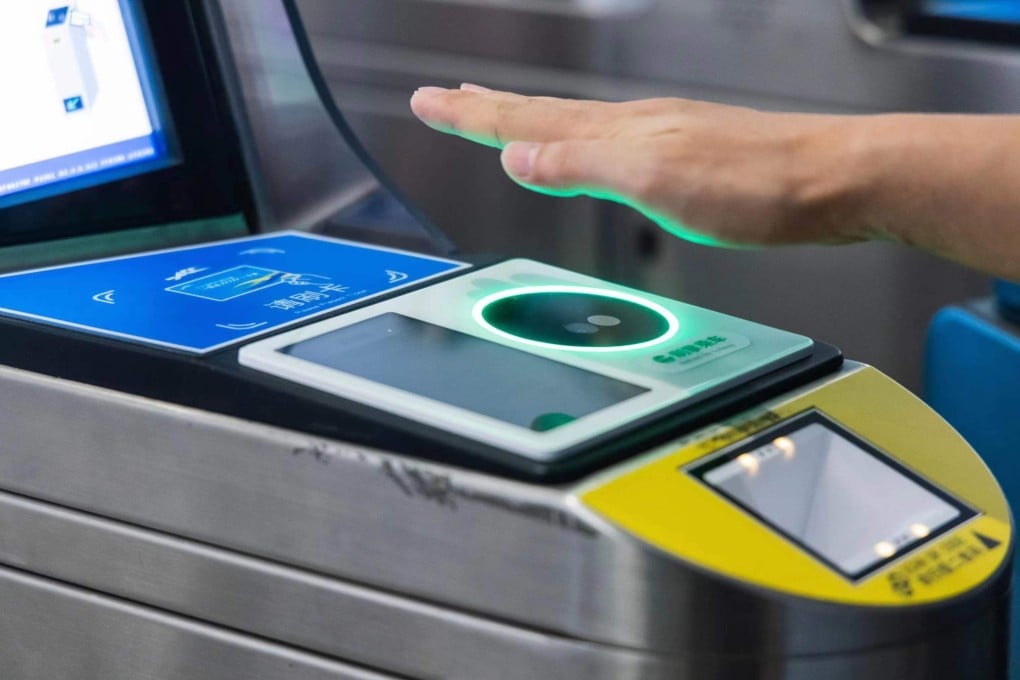Tencent launches palm payments in Beijing, allowing metro passengers to pay with the wave of a hand
- WeChat users who register their palm prints can pay for rides on Beijing’s airport express line using only their hands at designated turnstiles
- The technology joins other biometric payment methods like facial recognition, which have raised privacy concerns in China in recent years

Starting from Sunday, users who enrol in the palm-recognition service can pay for rides on the Daxing Airport Express Line by holding their hands over a scanner at metro station turnstiles. Recognition of a unique palm print triggers an automatic payment through the user’s WeChat account.
To register, palm prints must be taken at a designated machine at a metro station. Passengers can then use their palms at turnstiles with a green circle, Tencent said in a statement on Monday.
The technology relies on recognition of both surface-level palm prints and the hand’s veins, according to Tencent. It was developed by the company’s YouTu artificial intelligence lab.
“In our aim to improve efficiency and greatly simplify user experience, we are making new technology more user-friendly for the elderly and accessible to people with disabilities,” the company said in the statement.
Tencent said it is gradually rolling out palm payments for use in other settings including offices, campuses, retail outlets and restaurants.